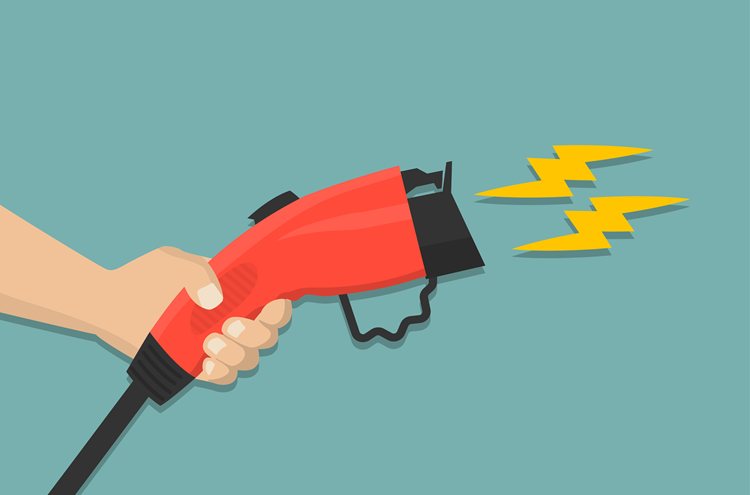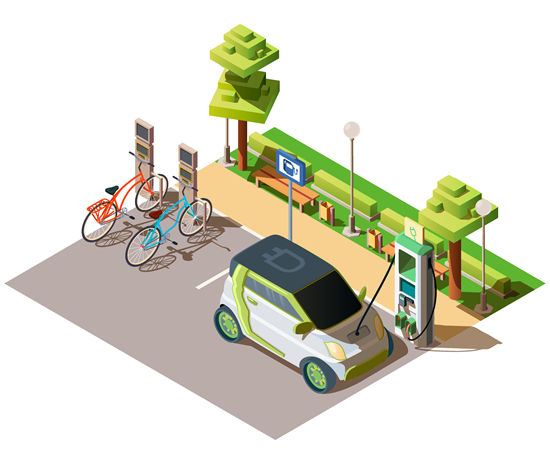With so many businesses now making the move to electric vehicles, it is a great time for independent retailers to do the same. However, there are some key pieces of advice that will help the transition be as smooth as possible…

As businesses across the UK embrace sustainability, the benefits of EVs for deliveries, customer services, and business operations can now be more easily harnessed by independent shop owners. The transition brings clear environmental and cost benefits, but also new challenges that require careful planning.
Adapting to EVs means ensuring that business owners, staff, and drivers feel confident using the new technology. Through Bira’s partnership with the AA, we’ve been able to provide some crucial advice for high street businesses that are looking to move into electric transport. From understanding the key differences between EVs and traditional petrol or diesel vehicles to tackling range concerns, here are a few essential tips to help make the switch as smooth as possible.
Understanding the differences between EVs and traditional vehicles
Driving an EV is not the same as driving a petrol or diesel vehicle; the absence of manual gears, instant acceleration, and regenerative braking all require a different approach. Becoming familiar with these differences will improve safety and efficiency.
- Instant acceleration – Without a traditional gearbox, EVs deliver power immediately, which can surprise drivers used to petrol or diesel vehicles. Smooth and controlled acceleration helps conserve battery life and ensures a comfortable ride.
- Regenerative braking – Unlike conventional brakes, many EVs slow down when the driver lifts off the accelerator, feeding energy back into the battery. This affects stopping distances and requires a different driving technique.
- Speed and efficiency – Higher speeds drain an EV battery more quickly. Encouraging steady, moderate speeds helps maximise range and reduce unnecessary charging stops.
Addressing ‘range anxiety’

A common concern among new EV users is "range anxiety"—the fear of running out of battery mid-journey. However, modern EVs have significantly improved range, and charging infrastructure is expanding rapidly across the UK.
You can help mitigate concerns by doing the following:
- Identify and familiarise drivers with reliable charging points along regular routes.
- Consider installing a workplace charging point, if feasible, to simplify charging logistics.
- Encourage staff using EVs for business to incorporate charging into their daily routines, just as they would with petrol refuelling.
- Use apps or maps to locate nearby charging stations, particularly those offering rapid charging for quick top-ups.
- Teach best practices for battery maintenance, such as avoiding frequent deep discharges and not overcharging.
Encouraging efficient driving habits
Small business owners rely on efficiency, and driving habits play a crucial role in maximising an EV’s range. Encouraging staff to adopt energy-efficient techniques can make a big difference.
- Smooth driving – Avoid rapid acceleration and harsh braking to conserve battery life.
- Reading the road ahead – Anticipating traffic flow helps reduce unnecessary braking and acceleration, improving energy efficiency.
- Using eco-driving modes – Many EVs come with an "eco" mode designed to optimise performance and extend range. Ensure drivers know how to use it effectively.
- Managing vehicle load – Carrying unnecessary weight can reduce efficiency, so keep loads as light as possible when making deliveries.
Invest in EV charging at your place of business
Installing an EV charging point at your business can offer significant benefits, both for day-to-day operations and long-term sustainability. Whether you use EVs for deliveries or simply want to offer a convenient service for customers and staff, having on-site charging can enhance your business in several ways.
- Convenience and efficiency – Charging vehicles while at work or during business hours reduces downtime and ensures they are always ready for use.
- Attract more customers – Offering EV charging can draw in eco-conscious shoppers, encouraging them to visit your store while their vehicle charges.
- Enhance sustainability credentials – Demonstrating a commitment to greener practices can strengthen your reputation and align with customer values.
Training and knowledge: empowering your staff
Making sure drivers understand their EVs will lead to better performance and fewer issues. Consider providing training for staff, covering:
- How EVs operate, including key differences from petrol or diesel vehicles.
- Safe driving techniques, particularly when adjusting to regenerative braking and instant acceleration.
- Charging procedures, including workplace, public, and home charging options.
- How to use in-car efficiency tools, such as eco-modes and real-time range indicators.
The business benefits of EV adoption
Switching to EVs is more than just an environmental decision—it can also benefit independent retailers financially. Lower running costs, reduced maintenance, and potential government incentives make EVs a smart long-term investment. Additionally, as customer demand for greener businesses grows, embracing electric transport can enhance your reputation and attract eco-conscious shoppers.
With the UK’s ban on new petrol and diesel vehicle sales approaching in 2030, now is the ideal time for retailers to prepare. By investing in EV-friendly infrastructure, educating staff, and embracing efficient driving habits, businesses can position themselves for a successful and sustainable future.
Up to 59% off business breakdown cover
Running a retail business with vehicles at its heart means that staying still isn’t an option. The AA’s business breakdown cover will make sure your drivers get back on the road quickly – and with minimum disruption – if the worst happens. All you need to do is choose the right level of cover for you.
Get more commission for your charging points...
Opcharge is adding value to Bira and it’s members by providing fully funded Electric Vehicle charging solutions.
With tailor-made solutions, fast installation times and press coverage for new installations, Bira members can drive footfall and customer retention while promoting sustainability by using 100% renewable energy by using Opcharge.

Stay in the loop on sustainability with our helpful hub
In the often fast-moving world of sustainability it can be intimidating to even attempt to stay up to date with the latest eco updates, not to mention working out what is relevant to your business.
Bira can help you handle this with our Sustainability in Retail Hub, which features the latest information that you need to know. Visit the hub today and keep on top of the sustainability information that matters to you.
Latest Resources
-
High Street Matters Podcast: Pubs Yes, Retailers No
The team responds to the Government's January 2026 announcement giving pubs 15% business rates relief while excluding independent retailers entirely.
-
Valentine's Window Display Competition
Win a membership subscription voucher by getting involved with Bira's Valentine's Window Display Competition!